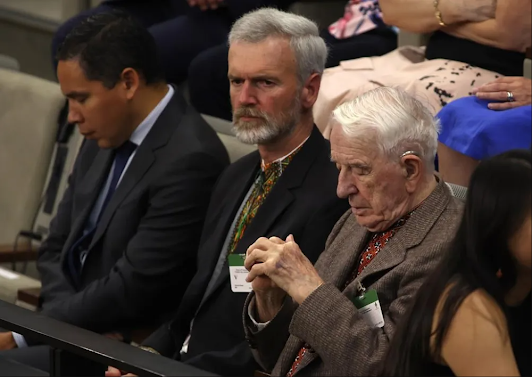When an individual suspected of taking part in the Second World War murder of Jews in western Ukraine applied for admission to Canada in 1951, immigration officials did not follow up with potential witnesses who might have provided crucial details.
In another case, a Slovak leader hoping to unite émigrés under his leadership was allowed to visit Canada repeatedly in the 1950s and ’60s, despite a record of war crimes.
In 1962, the RCMP learned that a Soviet trial of concentration camp guards in what is now called Belarus had named two people living in Canada as active participants in the execution of civilians during the war.
These are among several unsettling vignettes in the latest, more revealing version of a September 1986 study prepared for a landmark federal commission of inquiry on war crimes.
Even though the cases are labelled with letters of the alphabet, not names of suspects, they were excised from the original version of researcher Alti Rodal’s study, initially released under the Access to Information Act in heavily censored form in 1987.
B’nai Brith Canada used the access law to obtain the most recent, fuller iteration last summer. “There was no reason not to disclose it originally,” said David Matas, senior legal counsel for the group.
Rodal’s archival research and case analysis — including the once-hidden elements — are finding new relevance amid a push for greater transparency about how Canada has dealt with suspected Nazi war criminals and collaborators. (more...)
War crimes inquiry research sheds fresh light on Canadian screening, policies

No comments:
Post a Comment